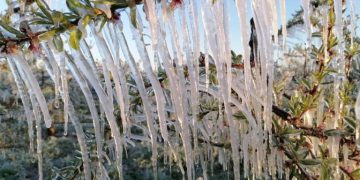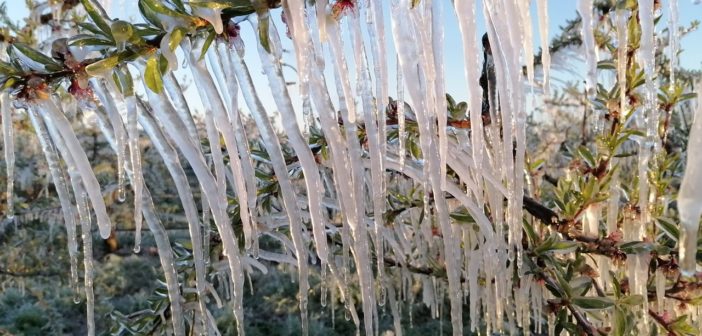The sharp drop in temperatures with cold and night frost damage the crops of vegetables and vegetables outdoors but the sudden temperature change inevitably has an impact on the increase in heating costs of greenhouse productions.
It is the alarm launched by Coldiretti on the effects of bad weather with the Arctic cold that is affecting the entire country after a month of December that had marked a higher temperature of 2.09 degrees the historical average but the anomaly was even 2.54 degrees in central Italy and 2.65 degrees in the south according to the elaborations on the updated Isac Cnr database.
The arrival of the great cold – underlines Coldiretti – affects the winter crops in the field such as cabbage, cabbage, chicory, and broccoli that also hold temperatures of a few degrees below zero but if the mercury drops suddenly or if the frosts are too long damage occurs. To worry-continues Coldiretti-is also the jump in costs for heating greenhouses for the cultivation of vegetables and flowers that is affected by the surge in the bill. The descent of the mercury column with the frost risks burning flowers and buds of plants and trees, with heavy effects on the next harvests after – recalls Coldiretti – the anomalous heat of December along the entire Peninsula has favored the early awakening of the early varieties of hazelnuts, peaches, cherries, apricots, citrus fruits and almonds.
Climate change – says Coldiretti-manifests itself with a higher frequency of extreme events, seasonal phase shifts, short and intense precipitation and the rapid transition from the sun to bad weather. Agriculture – concludes Coldiretti-is the economic activity that more than any other daily experiences the consequences of climate change with the damage caused by drought and bad weather that exceeded in 2022 6 billion euros.
A source: http://www.corriereortofrutticolo.it































